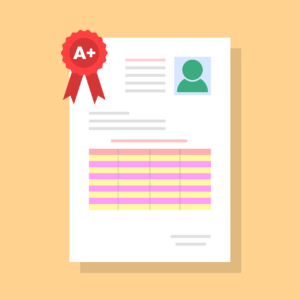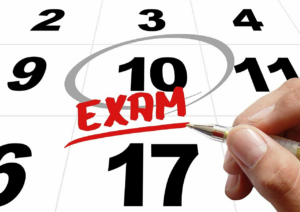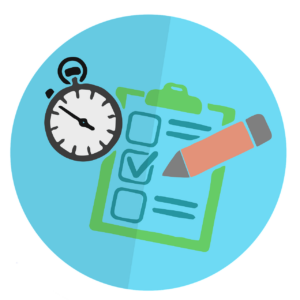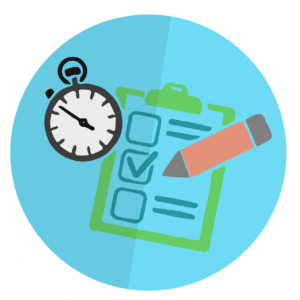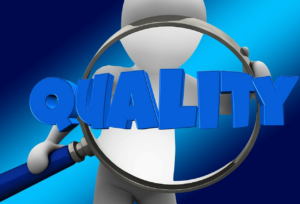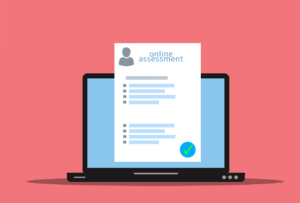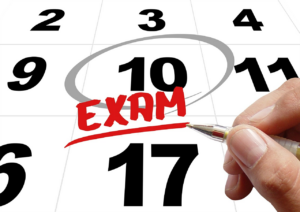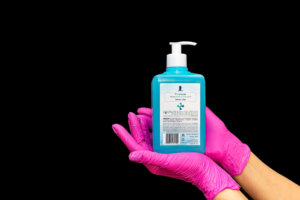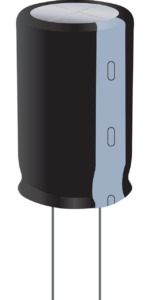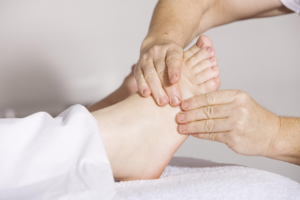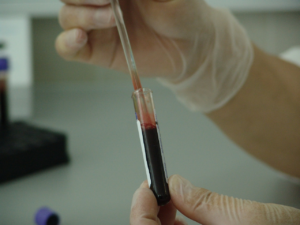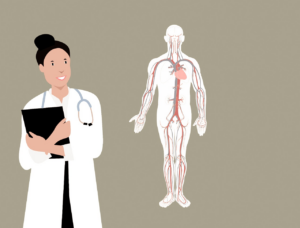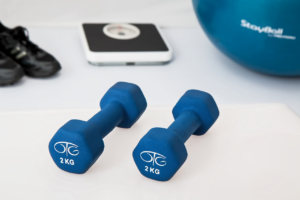Are you a foreign nurse looking to practice in the United States? If so, passing the National Council Licensure Examination (NCLEX) is an essential step in obtaining licensure to practice as a registered nurse in the U.S.
Although the NCLEX exam is the same for all nurses, regardless of nationality, foreign nurses must meet certain eligibility criteria and navigate a different application process than U.S. graduates. In this step-by-step guide, we will walk you through the requirements, application process, and tips for success in passing the NCLEX exam as a foreign nurse.
First, it is important to understand the eligibility criteria for foreign nurses to take the NCLEX exam. Generally, foreign nurses must meet the educational requirements equivalent to those of U.S. graduates, which includes graduating from an accredited nursing program and completing the required number of clinical hours.
Additionally, foreign nurses must have their credentials evaluated by a credential evaluation service to ensure they meet U.S. education standards. Once you meet the eligibility criteria, you can begin the application process for the NCLEX exam.
Key Takeaways
- Foreign nurses must meet educational and English language proficiency requirements and pass the NCLEX exam to obtain licensure to practice as a registered nurse in the U.S.
- The NCLEX exam is computerized and adaptive, with scoring based on the difficulty of questions answered correctly, and passing rate typically around 70%.
- The licensure process includes meeting state-specific requirements, which can vary, and continuing education may be required for professional development and licensure renewal.
- Effective strategies for NCLEX exam preparation include creating a study plan, utilizing study resources, and taking practice exams to identify areas needing improvement.
Understand the Eligibility Criteria
If you’re a foreign nurse, it’s crucial to understand the eligibility criteria for the NCLEX exam before applying. One of the first steps is to complete the Eligibility Verification process by submitting your transcripts and other documents to the Commission on Graduates of Foreign Nursing Schools (CGFNS). This process ensures that your education meets the required standards for the NCLEX exam.
In addition to completing the Eligibility Verification process, you’ll also need to meet the educational requirements for the NCLEX exam. This includes completing a nursing program that meets the minimum educational standards set by the National Council of State Boards of Nursing (NCSBN). You’ll also need to demonstrate proficiency in the English language by passing an approved language proficiency test, such as the Test of English as a Foreign Language (TOEFL).
By understanding the eligibility criteria and educational requirements, you can ensure that you’re on the right path to take the NCLEX exam and become a licensed nurse in the United States.
Apply for the NCLEX Exam
Now it’s time to start the application process for you to take your next big step towards becoming a registered nurse in the United States. To apply for the NCLEX exam, you need to complete an online application through the National Council of State Boards of Nursing (NCSBN) website. This online application is available 24/7 and can be accessed from anywhere in the world.
Here’s a list of things you need to do to complete your application:
-
Provide personal and professional information: You’ll be asked to provide basic information such as your name, date of birth, and contact information. Additionally, you’ll need to provide information about your nursing education, licensure, and work experience.
-
Upload required documents: You’ll need to upload several documents to complete your application, including your passport, nursing diploma, and transcripts. Make sure to have electronic copies of these documents ready before starting your application.
-
Pay the application fee: The application fee for the NCLEX exam varies by state and ranges from $200 to $350. You can pay this fee using a credit or debit card.
-
Wait for approval: The NCSBN will review your application and notify you once it’s been approved. This process can take up to six weeks, so make sure to submit your application well in advance of your desired exam date.
Prepare for the Exam
Now that you’ve applied for the NCLEX exam, it’s time to prepare for it.
There are several key points to keep in mind when preparing for this important exam.
Firstly, you should consider utilizing study resources such as review books and online courses.
Additionally, practicing with sample questions can help you become more comfortable with the format and types of questions you’ll encounter.
Lastly, make sure to manage your time effectively so that you have enough time to study and review before the exam.
Study Resources
There are plenty of study resources available to foreign nurses preparing for the NCLEX exam, so it’s important to find the ones that work best for you. Here are some effective strategies and online courses you can consider:
-
Review books: These are a great way to get an overview of the content you’ll be tested on. Popular options include Saunders Comprehensive Review for the NCLEX-RN Examination and Mosby’s Comprehensive Review of Nursing for the NCLEX-RN Examination.
-
Practice exams: These simulate the actual exam and help you identify areas where you need to improve. You can find free and paid versions online, including those offered by the National Council of State Boards of Nursing (NCSBN).
-
Online courses: These can provide a structured learning environment and access to expert instructors. Some popular options include Kaplan NCLEX Prep, UWorld NCLEX and NurseAchieve.
Overall, it’s important to choose study resources that align with your learning style and budget. Don’t be afraid to try a variety of options until you find what works best for you.
Practice Questions
You can improve your chances of passing the NCLEX exam by practicing with a variety of challenging questions that will test your knowledge and critical thinking skills. This is why taking NCLEX practice tests and mock exams is so important.
These resources will help you become familiar with the types of questions you will encounter on the actual exam and give you the opportunity to identify areas where you need to improve. NCLEX practice tests are designed to simulate the real exam and give you an idea of what to expect. They are available online and in book form, and you can choose from a variety of formats, including multiple-choice, fill-in-the-blank, and select-all-that-apply.
Mock exams are also available, and they are more comprehensive than practice tests. They cover all the content areas of the NCLEX and are designed to give you a sense of how you will perform on the actual exam. By using both practice tests and mock exams, you can build your confidence and increase your chances of passing the NCLEX.
Time Management
Managing your time effectively during the test will be crucial to your success on the NCLEX. The exam is designed to test your knowledge, critical thinking skills, and ability to make quick decisions under pressure. Therefore, it’s important to have an effective scheduling plan to ensure that you complete all the questions within the allotted time.
One way to manage your time during the test is by prioritizing tasks. Start by reading the question carefully and identifying the key points. This will help you to understand what the question is asking and determine the appropriate answer. You can also eliminate the options that are clearly incorrect, which will save you time and help you to focus on the correct answers.
Additionally, if you’re unsure about a question, don’t spend too much time on it. Move on to the next question and come back later if you have time. By following these tips, you can effectively manage your time and increase your chances of success on the NCLEX exam.
Take the Exam
Now that you’re ready to take the NCLEX exam, let’s talk about what to expect on test day.
You’ll need to arrive at the testing center at least 30 minutes before your scheduled exam time and bring valid identification.
The NCLEX exam is computerized and adaptive, and the scoring is based on the difficulty level of the questions you answer correctly.
Test Day Procedures
When arriving on test day, make sure to follow the proper procedures to ensure a smooth and successful experience. Here are four things you should keep in mind to help you feel more at ease and confident on exam day:
-
Arrive early: Make sure to give yourself plenty of time to get to the testing center. Showing up late will only increase your stress levels and may result in you being turned away from the exam.
-
Bring the required documents: Be sure to bring your identification and any other required documents with you on test day. Without these, you won’t be allowed to take the exam.
-
Manage test anxiety: If you suffer from test anxiety, there are several strategies you can use to help calm your nerves. Deep breathing, positive self-talk, and visualization techniques can all be helpful.
-
Focus on the task at hand: Once you’re seated and ready to begin the exam, try to focus solely on the questions in front of you. Avoid getting distracted by other test-takers or your surroundings, and remember to take breaks as needed to stay mentally sharp.
Exam Format and Scoring
Get ready to learn about the format and scoring of the test so you can feel confident and prepared on exam day! The NCLEX exam content is based on the knowledge and skills required for entry-level nursing practice, and includes four major categories: Safe and Effective Care Environment, Health Promotion and Maintenance, Psychosocial Integrity, and Physiological Integrity. Each category has several subcategories, for a total of eight subcategories. The test is computer adaptive, meaning that the level of difficulty of each question is determined by your response to the previous question. If you answer a question correctly, the next question will be more difficult. If you answer a question incorrectly, the next question will be easier. This continues until the computer has enough information to determine your ability level.
To pass the exam, you must meet the passing rate determined by the National Council of State Boards of Nursing (NCSBN). The passing rate varies by state and by year, but is typically around 70%. The exam is scored using a pass/fail system, and you will receive your results within a few days of completing the exam. If you do not pass, you will receive a diagnostic report that will help you identify areas where you need to improve. You can retake the exam after a certain waiting period, which varies by state. Keep in mind that the exam is designed to test your ability to apply nursing knowledge and skills in a real-world setting, so it is important to prepare thoroughly and take the test seriously.
What to Expect After the Exam
After completing the test, you’ll be filled with anticipation as you wait for your results to arrive. The post-exam emotions can be overwhelming, and it’s natural to feel anxious and uncertain about how you performed.
You may constantly think about the questions you answered, wondering if you got them right or wrong.
Once your scores arrive, you may feel a sense of relief or disappointment depending on how you performed. Score interpretation can also be confusing, but it’s important to know that passing the NCLEX exam is not based on a percentage or raw score. Instead, it’s based on whether you answered enough questions correctly to meet the passing standard.
Remember to take a deep breath and stay positive, no matter the results.
Obtain Licensure
To obtain licensure as a nurse in the United States, you’ll need to apply for a nursing license and meet state-specific requirements. This may include passing a background check, submitting transcripts, and completing continuing education courses.
It’s important to research the specific requirements for the state in which you plan to work as a nurse to ensure a smooth licensure process.
Applying for a Nursing License
Securing a nursing license is a crucial step for foreign nurses to practice in the United States. It involves a thorough application process that requires careful attention to detail.
To apply for a nursing license, you must first meet the immigration requirements and obtain the necessary visas to work in the United States. You’ll also need to demonstrate proficiency in the English language by taking and passing the Test of English as a Foreign Language (TOEFL) or the International English Language Testing System (IELTS).
Once you’ve met the immigration and language requirements, you can begin the application process for your nursing license. The application process varies by state, but typically includes completing an application form, submitting official transcripts from your nursing school, and providing proof of your nursing license from your home country.
It’s important to carefully review the application requirements for the state in which you wish to practice and ensure that all required documents are submitted in a timely and accurate manner. With a little patience and attention to detail, you can successfully obtain your nursing license and begin your career as a foreign nurse in the United States.
State-Specific Requirements
Navigating the unique state-specific regulations for nursing licenses can be a challenging task for international healthcare professionals. It’s important to research each state’s specific licensing requirements to ensure that you meet all the necessary criteria.
Some states require additional exams or certifications, while others may have different education or language proficiency requirements. In addition to state-specific licensing requirements, foreign nurses must also navigate the visa application process.
Depending on your country of origin and the state you are applying to, you may need to obtain a certain type of visa or work authorization. It’s important to stay informed about any updates or changes to visa regulations, as this can affect your ability to work as a nurse in the United States.
By staying organized and taking the necessary steps to meet state-specific requirements and obtain the appropriate visa, foreign nurses can successfully navigate the process of obtaining a nursing license in the United States.
Continuing Education
As an international healthcare professional seeking a nursing license in the United States, you can stay up-to-date with the latest advancements in the field through continuing education courses and workshops.
Continuing education is an essential component of professional development in nursing, as it helps you maintain and enhance your skills and knowledge, improve patient care, and boost your career prospects. Moreover, many state boards of nursing require foreign nurses to complete a certain number of continuing education hours as a prerequisite for licensure.
Continuing education courses and workshops offer a wide range of topics, from clinical practice to leadership and management, ethics, and patient safety. You can choose from various formats, such as online courses, webinars, live events, and self-paced learning modules.
Additionally, many professional nursing organizations offer continuing education opportunities and resources, such as journals, conferences, and certification programs. By participating in continuing education activities, you can demonstrate your commitment to lifelong learning and professional growth, and enhance your credibility and reputation as a competent and knowledgeable nurse.
Tips for Success
To boost your chances of success, it’s essential to take advantage of study resources and practice exams. Here are some effective strategies that you can use to prepare for the NCLEX exam:
-
Create a study plan – A study plan helps you stay organized and focused on your goals. It also helps you allocate enough time for each topic. Make sure to include regular breaks in your study plan to avoid burnout.
-
Use study resources – There are various study resources available online, such as NCLEX review books, practice questions, and video tutorials. Make use of these resources to reinforce your understanding of key concepts.
-
Take practice exams – Practice exams help you familiarize yourself with the format and types of questions you can expect on the NCLEX exam. It also helps you identify areas where you need to improve.
By avoiding common mistakes and using effective strategies, you can increase your chances of passing the NCLEX exam and achieving your dream of becoming a registered nurse in the United States.
Frequently Asked Questions
Are there any requirements for foreign nurses to have prior work experience before taking the NCLEX exam?
You may be wondering if prior work experience is necessary for foreign nurses to take the NCLEX exam. The answer is no, there aren’t specific requirements for work experience before taking the exam.
However, it’s important to note that having experience in the field of nursing can be beneficial in preparing for the exam and in obtaining a nursing job in the United States.
Ultimately, the decision to gain work experience before taking the NCLEX exam is up to you and your individual circumstances.
Can a foreign nurse take the NCLEX exam if they do not have a visa or work permit for the United States?
If you’re a foreign nurse who wants to take the NCLEX exam but doesn’t have a visa or work permit for the United States, you’ll need to go through the immigration process first.
Without the necessary documentation, you won’t be able to legally enter the country and take the exam.
Once you obtain the appropriate visa and work permit, you can then register for the NCLEX exam and begin preparing for it.
Keep in mind that the immigration process can take time and may require a lot of paperwork, so it’s important to start the process as soon as possible if you want to take the NCLEX exam in the United States.
Is it possible for a foreign nurse to take the NCLEX exam multiple times if they do not pass on the first attempt?
Yes, it’s possible for you as a foreign nurse to retake the NCLEX exam if you don’t pass on your first attempt. The NCLEX retake policy allows for up to eight attempts, with a 45-day waiting period between each attempt.
It’s important to take advantage of preparation resources, such as review courses and practice exams, before retaking the exam to increase your chances of success. Additionally, it’s important to evaluate your performance on the first attempt and identify any areas where you may need additional study.
With dedication and preparation, you can pass the NCLEX exam and achieve your goal of becoming a registered nurse in the United States.
How long does it typically take for a foreign nurse to obtain licensure in the United States after passing the NCLEX exam?
To estimate your timeline for obtaining licensure in the United States as a foreign nurse after passing the NCLEX exam, you’ll need to consider several factors.
First, you’ll need to ensure that you have the appropriate visa and work permit requirements in place. This process can take several months, depending on your individual situation and the processing times of the relevant government agencies.
Once you have the necessary paperwork in order, you can begin the process of applying for licensure in the state where you plan to practice. Depending on the state, this process can take several weeks to several months, and may include additional exams or training requirements.
Overall, it’s important to be patient and diligent in your efforts to obtain licensure, as the process can be complex and time-consuming.
Are there any additional requirements or exams that a foreign nurse must take in order to practice in certain states within the United States?
If you’re a foreign nurse looking to practice in the United States, there may be additional state requirements you need to fulfill before you can start working. These requirements can vary depending on the state and may include additional exams or certifications.
Additionally, you’ll need to make sure you have the appropriate visa and work permits in place before you can begin practicing. It’s important to research the specific requirements for the state you plan to work in and make sure you have all the necessary documentation before you start applying for jobs.
Conclusion
Congratulations! You’ve successfully completed the NCLEX exam and obtained licensure as a foreign nurse.
It may have been a long and challenging journey, but your hard work and dedication have paid off.
You’re now ready to embark on a fulfilling career in nursing in the United States.
As you begin your career, remember to continue learning and growing as a nurse.
Stay up-to-date on the latest medical advancements, and never stop seeking opportunities to expand your knowledge and skills.
Nursing is a rewarding profession that offers countless opportunities for personal and professional development.
So, take advantage of every opportunity that comes your way, and enjoy the journey ahead.
Best of luck to you!









